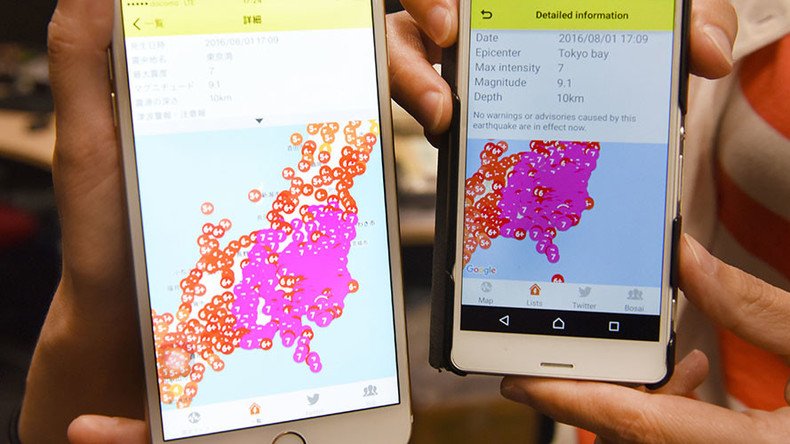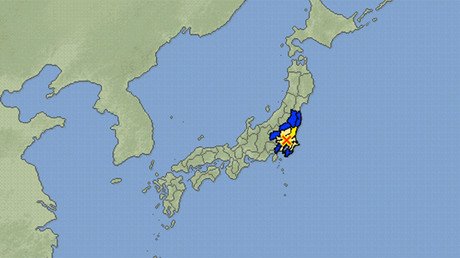Japan comes to standstill after official agency issues false 9.1 earthquake warning

Trains ground to a halt, a mobile network became jammed, and thousands of citizens began to panic as Japan’s meteorological agency sent an alarm that a massive earthquake was about to strike the capital Kanto Region, home to more than 40 million people.
The warning was issued at 5:09pm local time on Monday, and quickly relayed to mobile apps that warned millions of Tokyo residents about an earthquake measuring 7 out of 7 on the scale used within the country – equivalent to 9.1 on the Richter scale, and as bad or worse than the Tohoku disaster of 2011.
Bullet trains began to stop services, in accordance with regulations, and NTT Docomo, the country’s largest mobile provider, reported that for 15 minutes the network was overloaded and went down.
But then – nothing happened.
“The quake that had been predicted has not taken place. It’s an error on our part. We sincerely apologize,” said Japan’s Meteorological Agency.
The organization said that it was the biggest false alarm since the current modern warning system was introduced back in 2007, and said the erroneous reading was produced by electrical noise. Interference from electrical currents disturbing the sensor or cable is a frequent cause of false alarms in early-warning systems, though equipment is usually designed to filter out the noise.
The agency said it warned most apps about the false positive, and they were able to cancel the alert in time, but one major app, Yurekuru, still sent out the alert.
Social media was quickly filled with reactions, from relief, to confusion to anger at officials and app developers.
“When I saw the Yurekuru app screen, I prepared to die,” read one tweet.
My earthquake app just told me a level 7 quake was coming. There was nothing but it gave me such a damn fright OMGGGGGG
— Jax (@TOPsDayDream) August 1, 2016
This is not what you want from your Earthquake warning app. No quake, but I did just age a year. pic.twitter.com/NX5wwdzDWg
— Beatrice Thomas (@bea_thomas82) August 1, 2016
This is what the NIED's real-time shaking monitor showed. To repeat,this was issued IN ERROR, Tokyo is fine. For now pic.twitter.com/e6PCkWYMZa
— Gearoid Reidy (@GearoidReidy) August 1, 2016
The last major earthquake in Japan, which sits on the boundary of four tectonic plates, happened in April, when more than 40 people were killed in a series of shocks on the island of Kumamoto.














